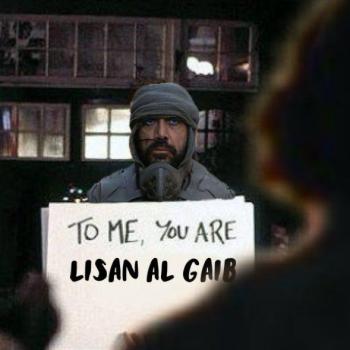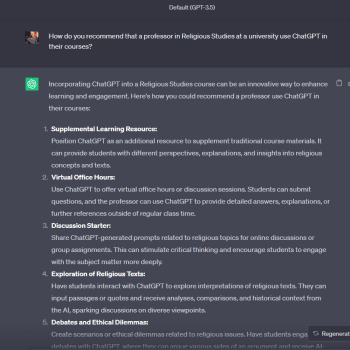This is another of those posts that started as a link dump and grew until it was out of control. The original idea that sparked it off was the notion of “malaugmented reality” – a phrase I encountered on P.Z.Myers’ blog Pharyngula. We have begun to speak of “augmented reality,” and the experience of the world as having a whole other layer – whether of gods, demons, spiritual warfare, conspirators, aliens, lizard people, or anything else – is potentially a similar kind of overlay, which if false or simply unhealthy, may cause us harm.
There are several conferences and a journal issue related to this topic that I want to highlight, with calls for papers. One is a conference about Trust, another is about the media and (mis)information, one is about Toxic Traditions and maladaptive beliefs, one is about contemporary legends, one is about Conspiracy Theory, Politics, and Representation, and one is about getting beyond post-truth. Still others are mentioned below. But first for a round-up of quotes and links related to this topic. Just recently, The Point had an article about how the internet is transforming our political discourse and other communal conversations. Here is an excerpt:
If many online bigots and loudmouths turn out to be perfectly pleasant in person, we can hardly be surprised then—just as there are plenty of nice dogs who bark viciously from behind a fence, and plenty of nice people who are transformed into irate bullies when they find themselves behind the wheel of a car. That’s not to say that many others won’t or don’t carry out perfectly reasonable and courteous discussions online; but that they hold themselves there according to their own will rather than by the demands that the medium makes on them. The internet makes civility and persuasiveness optional, like everything else, by allowing us to separate our political convictions from our social offline selves—to privatize, in this sense, what is public.
It is not just that internet communication makes it easier to insult others, however; it is that it does so while expanding the bounds of what we feel we ought to take into our own hands. The personalization and depersonalization of online speech renders our reasons at once more categorical and intimate: everyone has the means to police offenses against this or that group or cause, and since we can immediately weigh in—since it feels, that is, as if what is on the screen is in some sense immediate to and part of our direct personal experience—we are each liable to become an open nerve of anger. It is this combination of engorged accountability and relative impunity that makes online speech so eager to aggress and take offense. (Hence the “crybully.”) Godwin’s law is the flipside of the fact that you may you may punctuate any discussion with a bland “disagree”: it is because our punches can’t connect that we may pack them with all the force we can muster. As words matter more (because they are the main way others encounter us), they also matter less (because there is finally nothing doing). We simulate discussion and political engagement without the underlying stakes.
Linda Stomato wrote in Inside Higher Ed:
These are tough days for truth and, particularly, for those truths that are supported by evidence that academic experts provide. It’s a strange new world dominated by intentional misinformation and disinformation campaigns, by deliberate hoaxes, and by the slander of solid, verifiable facts as questionable, even false — not to mention the maligning of individual academics. The constant challenges to truth, and the means to arrive at it through informed and reasoned discourse, exacerbate the trend.
Inside Higher Ed had an article about the role of universities in combating propaganda.
Hemant Mehta highlighted how YouTube is persuading people to believe the Earth is flat:
https://friendlyatheist.patheos.com/2019/02/20/almost-all-flat-earthers-say-youtube-videos-convinced-them-study-says/
The Chronicle tackled accusations of indoctrination being substituted for education. There is also a call for papers related to this topic (in Romania!):
https://relcfp.tumblr.com/post/183178029701/july-4-2019-july-5-2019-conference-or
See also:
Critical Thinking: How To Make Students Better
On doubting science and engendering trust, RJS writes:
Discernment is hard work and requires an openness to challenging conclusions. I am open to genuine evidence that undermines the basic evolutionary model of development over deep time. So far I haven’t seen any.
The ‘Skype a Scientist’ program that seeks to combat fake news.
Connor Wood blogged several times about postmodernism and science.
UK seeking to curb fake news with new laws
A recent study of why people believe in psychic powers
Inside the Secret Sting Operations to Expose Celebrity Psychics
Justifiably Believing That Something Is True Doesn’t Mean You Know It
https://friendlyatheist.patheos.com/2019/03/03/measles-outbreaks-are-a-result-of-misinformation-and-a-lack-of-government-trust/
Is the tide of social media facilitation of antivaxxers and other denialists turning?
Valerie Tarico wrote about how we have been hacked and hijacked, psychologically.
Journalism in the era of fake news.
Randal Rauser wrote about how an anti-vaccine mother changed her mind, and what her example teaches us.
Fred Clark on the satanic panic hoax and its persistence.
https://relcfp.tumblr.com/post/183397307187/june-1-2019-cfp-for-conference-or-similar
Meeting Our “Enemies” Where They Are: The Advantage of Understanding Your Adversary’s Arguments
Does Christianity Solve the Problem of Evil? (spoiler alert: no, it doesn’t)
The Chronicle of Higher Education addressed teaching information literacy in an era of lies.
There was an interesting article about information and democracy.
How older and younger people fare at fact-checking
Yuval Noah Harari on fake news
Who has the right to remember?
David Brin wrote about fighting back against disinformation
Social authoritarians and fake news
How to change someone’s mind according to science
Misinformation was last year’s “word of the year” chosen by dictionary.com
Information Literacy’s Third Wave
https://sciblogs.co.nz/bioblog/2018/03/13/why-is-one-persons-science-anothers-conspiracy-theory/
Let No One Enter Here Who Has Not Studies Conspiracy Theories
Fake videos of real people vs. real videos of fake people
http://friendlyatheist.patheos.com/2018/10/25/religious-right-group-claims-george-soros-is-renting-progressive-christians/
https://friendlyatheist.patheos.com/2019/03/06/teen-who-defied-anti-vax-parents-by-getting-his-shots-testifies-before-congress/
http://www.patheos.com/blogs/crossexamined/2018/09/5-ways-to-correct-misinformation-while-minimizing-the-backfire-effect/?utm_source=facebook&utm_medium=social&utm_campaign=FBCP-PATH&utm_content=Sept2018
YouTube has stopped promoting videos that promulgate conspiracy theories. There was also an interesting piece about one of the internet’s oldest conspiracy theories.
The importance of diversity in higher education
The educational experiences that public schools provide
Religious belief and belief in organic food claims
Cognitive behavioral psychology and the logical fallacies we encounter in online conversations
Issues on the Left and not just on the Right
Why do people believe in pseudoscience?
Vices of the mind: fake news, conspiracy theories, bullshit etc…
How filmmakers created fake newsreels in the 1920s.













